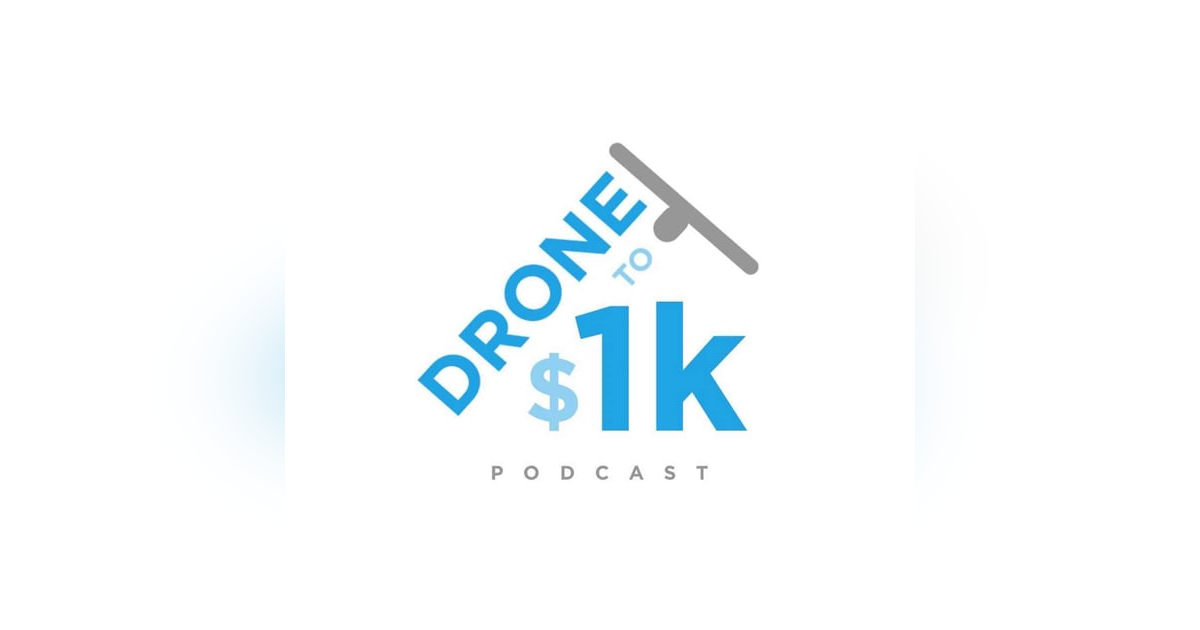S1/EP 10: Martin Novak from FlyLife Co

Martin hosts The FlyLife Podcast for FPV-based podcast for UAV drone people. It’s also a long format—bi-weekly episodes are between 1-2 hrs and he now has over 50 episodes. He’s also done very niche-specific commercial drone work. He got into drones in 2
Martin hosts The FlyLife Podcast for FPV-based podcast for UAV drone people. It’s also a long format—bi-weekly episodes are between 1-2 hrs and he now has over 50 episodes. He’s also done very niche-specific commercial drone work. He got into drones in 2015 because, after a break up, he was habitless and wandering Best Buy and found a small $60 drone, which flew into a house and broke. He then went online and found an FPV (First Person) drone and started flying on his own. He fell in love because it was creative and technical. So he decided to search CraigsList for drone jobs...and found one quite near his house. He didn’t get the job but was able to intern and learn when he wasn’t working at his restaurant. In late 2017 the place where he interned asked him to come back and build a drone. He found a lot of other contract jobs to do UAV work while still working at the restaurant. Then the restaurant sold and he had a bit of money and time to travel the country and meet people. The last thing to happen—in April 2019—was a lucrative opportunity to do FPV drone work that he was offered because he was very comfortable flying close to the ground. He also simultaneously got an offer to film an Olympic skier with an FPV drone.
Martin also works with a magnetometer—a device that can detect metal with a GPS. It picks up anything emitting electromagnetic radiation and it will give you a color-coded map of anomalies in the ground. He is hired by companies looking to understand what’s on their land that they may possibly sell rights for. For those types of jobs, Martin was making $250/day plus expenses, or $2,000/week. Martin says real estate can be a tough market and it’s not his passion.
What he DOES love is the FPV cinematic work, which is really fun and pays better than magnetometer work. Martin is on all social media: YouTube is flylifeco; Instagram and Facebook are flylife_co. Martin says he’s gotten most of his clients from social media. His camera is nothing special but wants to upgrade soon. He films everything on GoPro Hero 6 or 7. He also uses Reel Steady as a post-filming production software. He says the footage isn’t shaky but it shouldn’t look like an action cam. He uses 7 for hyper-smooth because it runs a different firmware. So if you want to run steady with it, you have to use a gel-mount. The 6 has a lesser firmware on its gyro which takes less time to process. His typical FPV shoot is action sports filming because he can be going 60 mph and then stop. He chases active work and also tight interior spots. The least amount he’s charged for a day of filming was $600 per day. The most he’s charged was $2,500 for two full days of filming. He says he’s charging for something that’s close and can be dangerous but he can get in tight for action.
Martin did have contacts from building relationships with his internship in the FPV world. If he were starting up and needed clients, Martin says he wouldn’t do anything different but maybe would put more effort into certain areas. His basic advice is:
“You can’t have a chimp on your shoulder and think about what you’re going to get out of something. Do some things for free—everyone has a friend who needs pictures. Great content producers have taken a lot of flights. Say Yes—you’ll learn a lesson or something new.”
Getting some photography and going home to realize you made a mistake is something everyone does...but you don’t have to do it twice. Martin is always ready to tell people what he does and much of the work that he’s gotten has been from random meetings or when he just puts himself out there.
“The little things really matter—pay attention and be passionate.”
Martin favors Instagram to showcase his work, he believes it’s the place with the least opinion. You get a one-minute post to grab someone’s attention, which is not stressful. Adding hashtags makes it really consistent and easy for people to notice you.
His biggest challenge was breaking into it. Growing things on the Internet to get to the first paid job can seem long but it adds confidence. He is selling himself so he has had to be capable. Everything is a learning process. Drones now are what cars were in 1918 and the industry is still being built. Regulations will change and things are evolving; but the sky’s the limit.
Connect with Martin- Instagram: www.instagram.com
- YouTube: www.YouTube.com
- Facebook www.facebook.com
- Complete this questionnaire: Drone to 1K Business Owner Application
- Part 107 Exam Prep Course ($50 off)
- Aerial Video A to Z Course (20% off)







